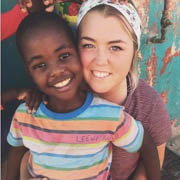
Traveling and joining Peace Corps was a part of Jackie’s plan since the 6th grade. Now she teaches students who are forming their own goals, plans, and dreams. As a Rural Education Development Volunteer, she teaches classes Monday-Friday with up to 70 students in a classroom, ranging from 10-16 years old. We talked with Jackie about how her time on IMMERSION prepared her for the next big step of a 2+ year commitment abroad.
EM: Thanks for taking the time to share with us, Jackie! We’re so excited to catch up with you and know your input will be really helpful to others who are considering IMMERSION as a stepping stone into a more long-term commitment like the Peace Corps. So let’s jump right in! As you look back on your IMMERSION experience, how did it prepare you to become a Peace Corps Volunteer?
Jackie: When I look back on my IMMERSION experience, I think it gave me a good look into cultural sensitivity and why it is so important to immerse into a new culture when you are doing any kind of development or mission work in a new context. In order for people to trust and respect you, they have to know you trust and respect them. It's a two-way street any place you go in the world. IMMERSION does a good job of preparing you to forget everything you know and keep an open mind as you travel to a new, exciting, foreign place.
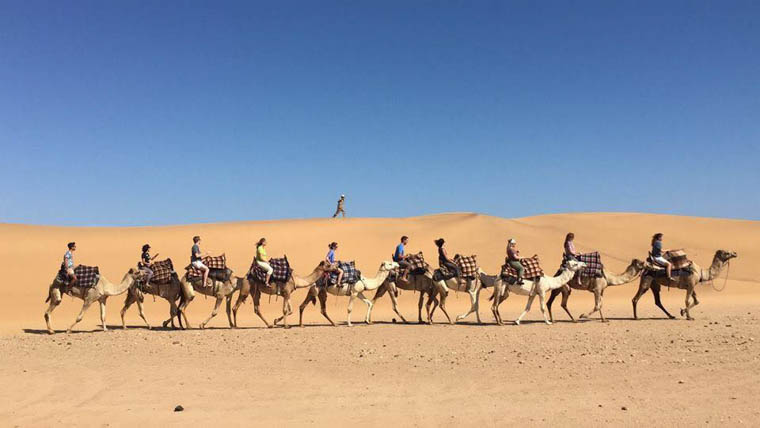
EM: Can you talk more about relationships and why this focus is so important in missions or any sort of long-term development work?
Jackie: When you join Peace Corps one of the biggest goals is building local relationships. You can be posted as far as 50 kilometers from the next volunteer. If you want to make a sustainable impact on your community then it needs to be at a grassroots level. All of your work in Peace Corps is working with community members to make lasting change. No one achieves anything alone, especially here. If you want a grant to be approved for a project, community involvement is required in order for your grant to be approved.
EM: We try to mentally prepare IMMERSION team members for the reality that building relationships or living the local way can come with a lot of challenges. What advice would you give to someone as they prepare to step out of their comfort zone?
Jackie: My biggest advice for doing IMMERSION or Peace Corps is to humble yourself. Learn the language, ask people questions, get to know them, eat the food (even if it scares you), and don't hold anything back; you will never get these opportunities again. It's uncomfortable, but it teaches you a lot about yourself.
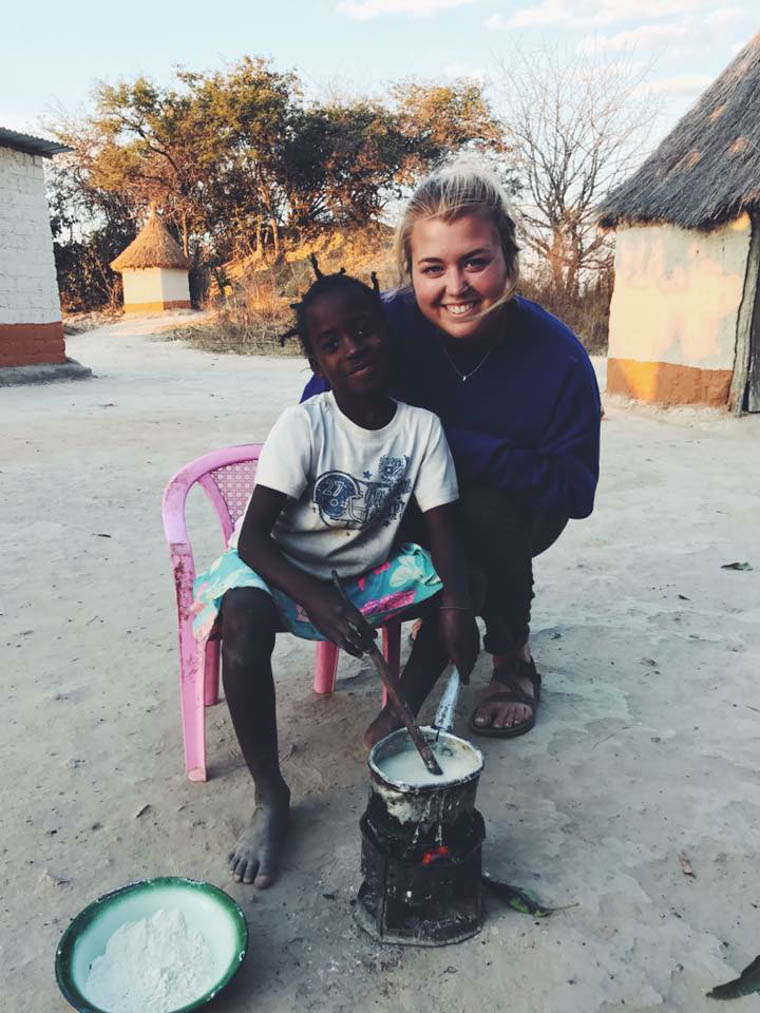
EM: The jump from 1, 3 or 6 months to 2+ years abroad is a big one. What advice would you give to someone who wants to explore becoming a Peace Corps Volunteer but isn’t quite sure if they’re up for the challenge?
Jackie: My advice for thinking about Peace Corps after IMMERSION is to first consider carefully if you can leave home for 27 months. It’s a long commitment and the worst thing you can do is accept a position, travel to the country you will be serving in, and leave early because of homesickness. You may also want to think about how flexible and open-minded you are. These are two of the most helpful qualities to have when working cross-culturally. Each day looks different from one another, and even more different from a day in America. Also, progress here is sometimes difficult to quantify. Similar to the IMMERSION program, a lot of your work is making relationships, and that is something you can't report on. One of my favorite quotes is by Bob Goff: "Loving people means caring without an agenda. As soon as we have an agenda, it's not love anymore." When you enter into an experience like IMMERSION or Peace Corps you simply need to go in with an open mind and no expectations.
You aren't going to save the world, but you are going to impact people, and that is an amazing thing.
EM: We love that advice! It’s such a good reminder. Switching gears to the super practical, let’s talk about résumés! Did having an experience like IMMERSION on your résumé help you get into Peace Corps? What other opportunities do you think are important in the selection process?
Jackie: Peace Corps wants to see you are a flexible person. They want to know you care about their mission: to promote world peace and friendship. Having an experience like IMMERSION for sure helped me get accepted. Of course, local volunteering and other relevant experiences are also important, but overall I think they are looking for someone who is going to be there and work hard for the 27 months of service. They want to make lasting change at a grassroots level, a lot like the model Experience Mission embraces.
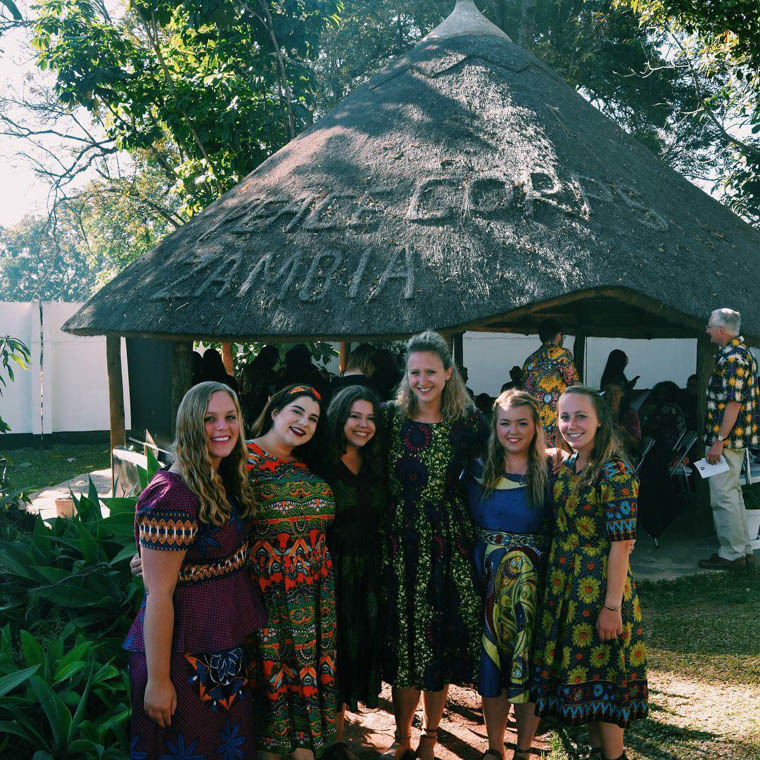
EM: Thanks so much for sharing your experience and insight, Jackie! We know a lot of people considering IMMERSION hope to do Peace Corps someday, so it’s great to see the connections and know this is a possible stepping stone. Any final thoughts to share?
Jackie: If anyone has any questions about Peace Corps, they can feel free to reach out to me by email: jackiespiesspcv@gmail.com I’m happy to share more about my experience!
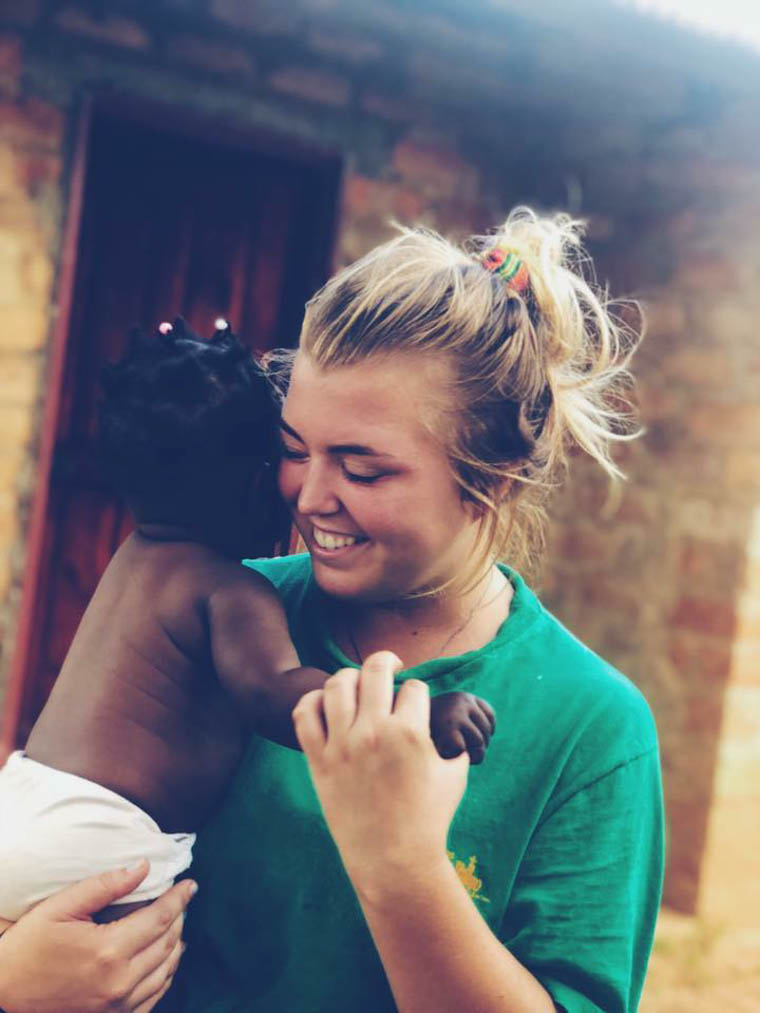
Want to take the next steps for IMMERSION as you prepare for a long-term commitment abroad? Begin by filling out an interest form for one of our upcoming trips to Africa, Latin America, the Caribbean, or the Middle East.
More IMMERSION Stories


Site developed and hosted by Skycog, Inc.
